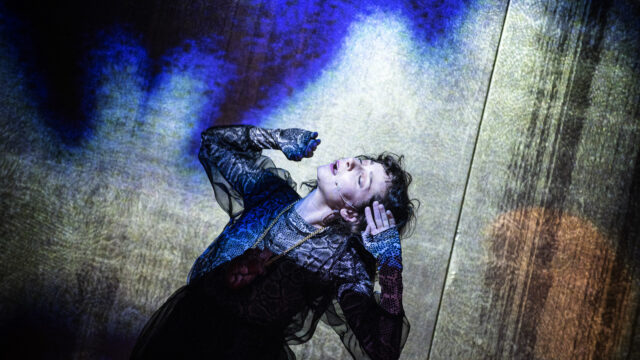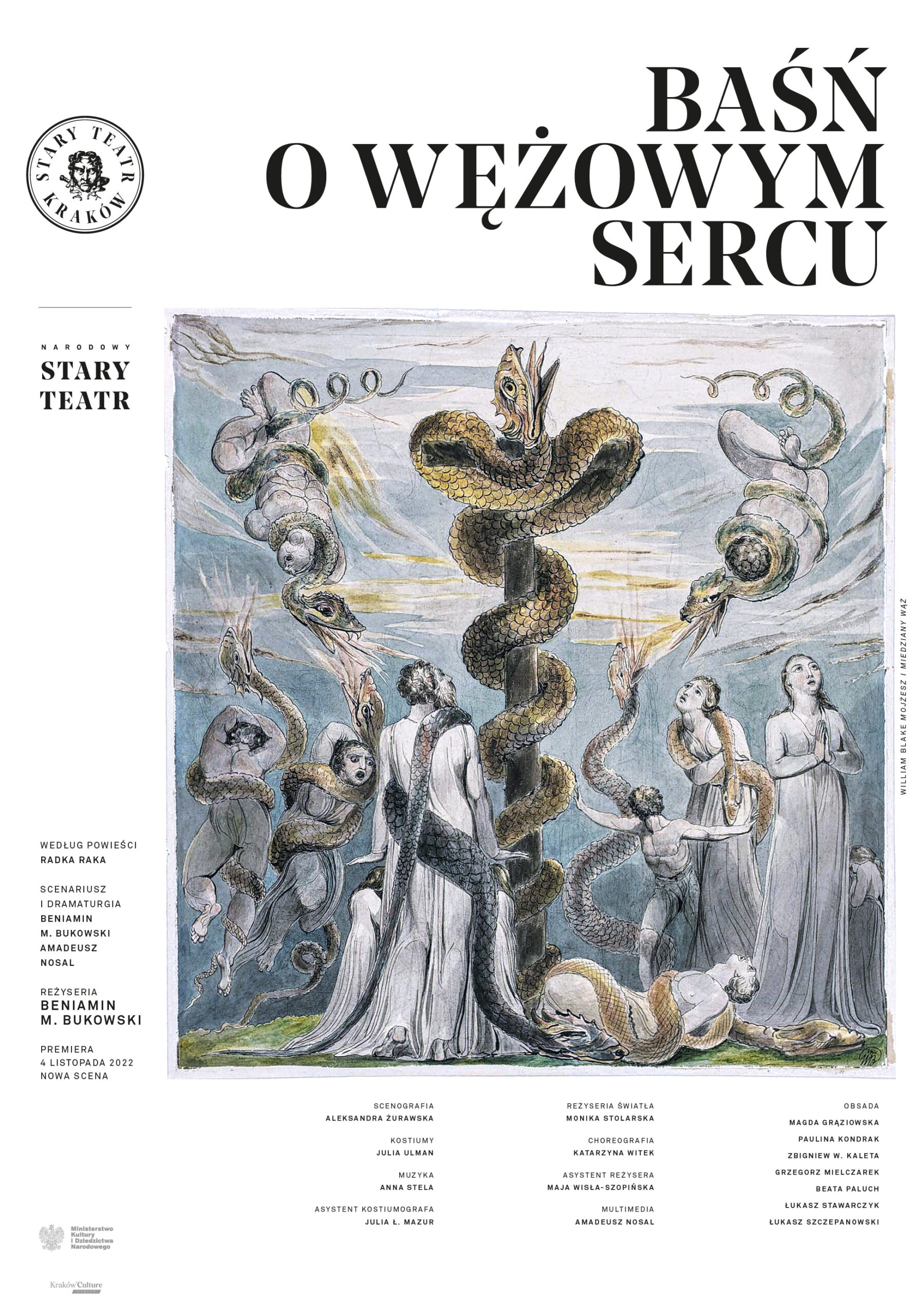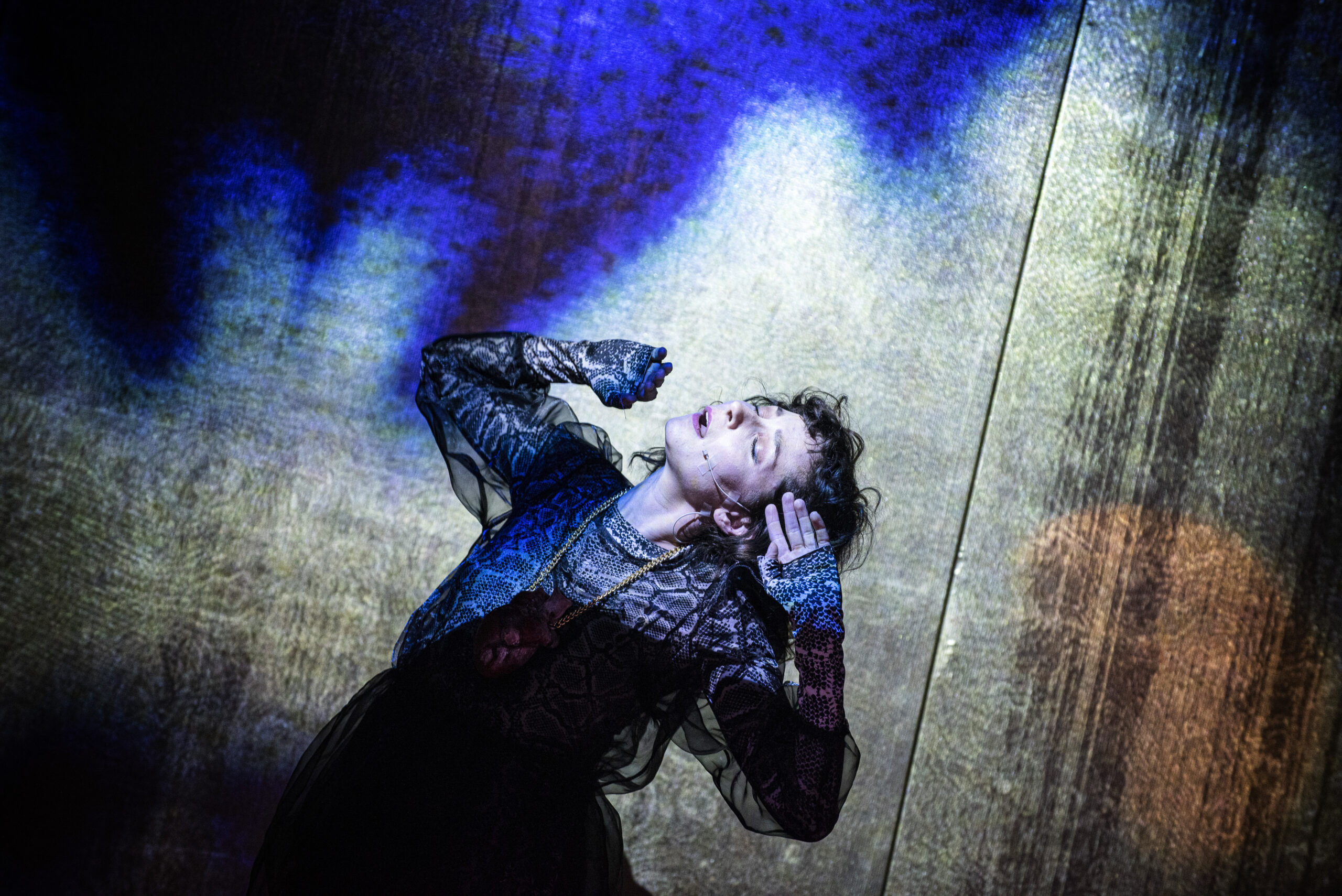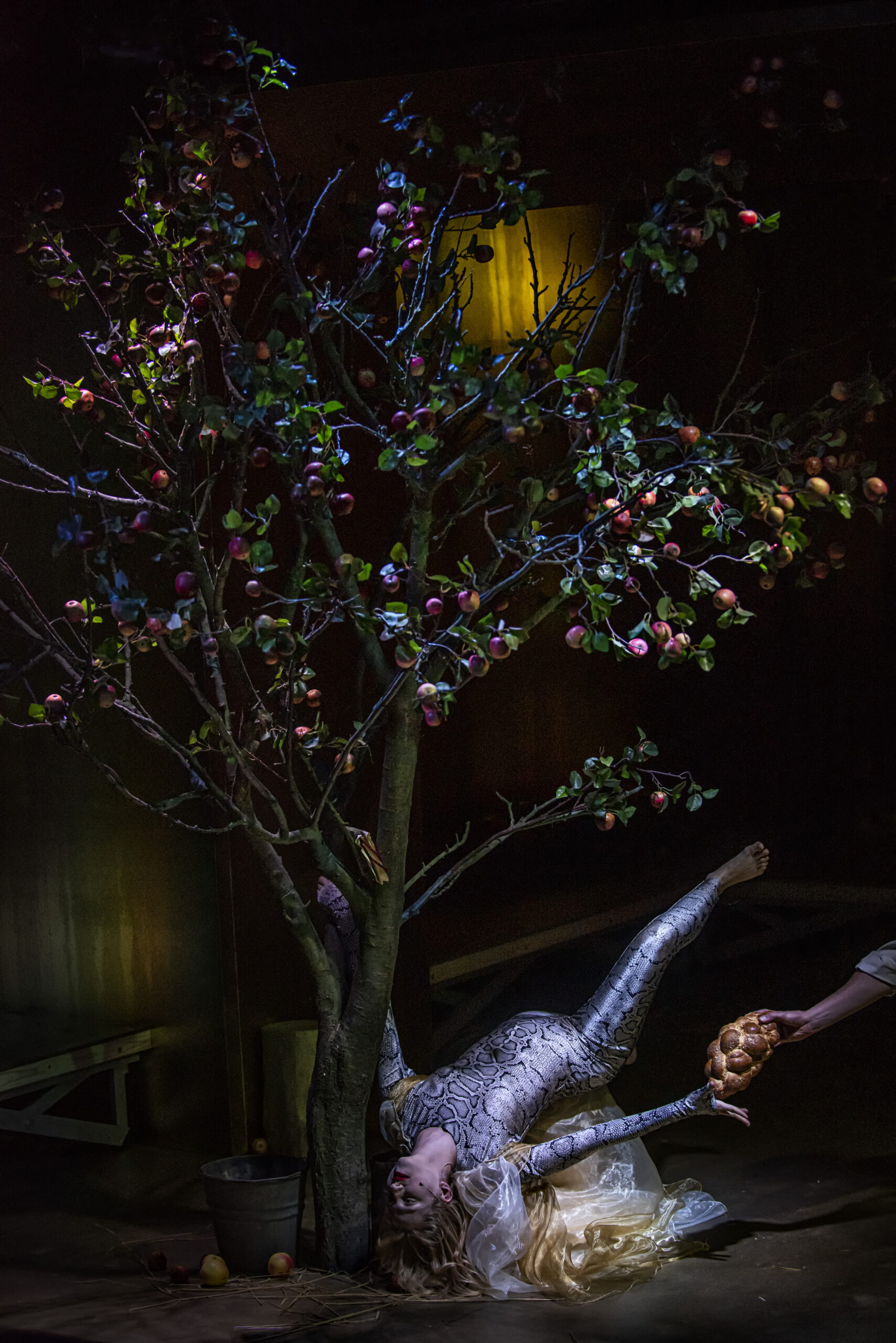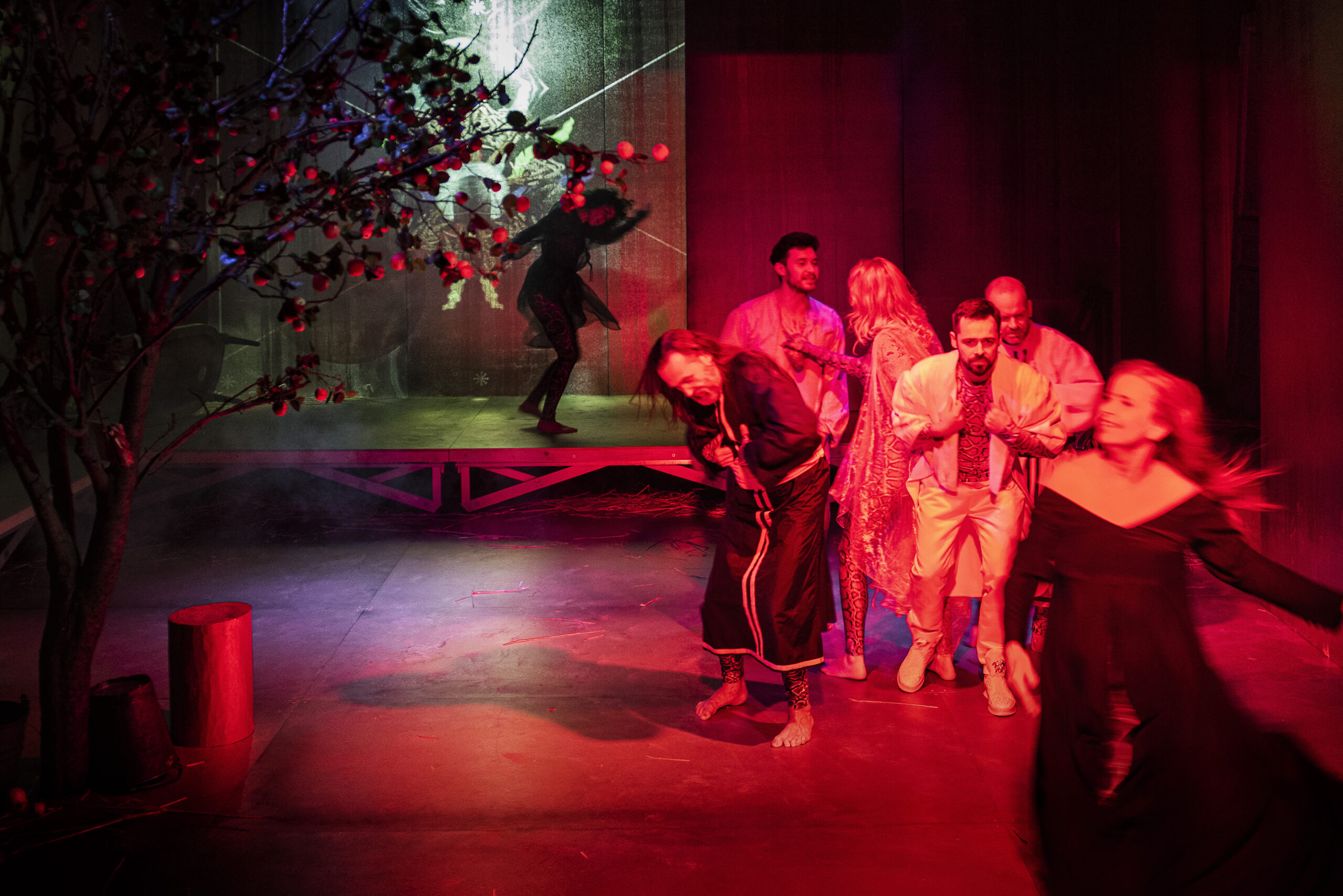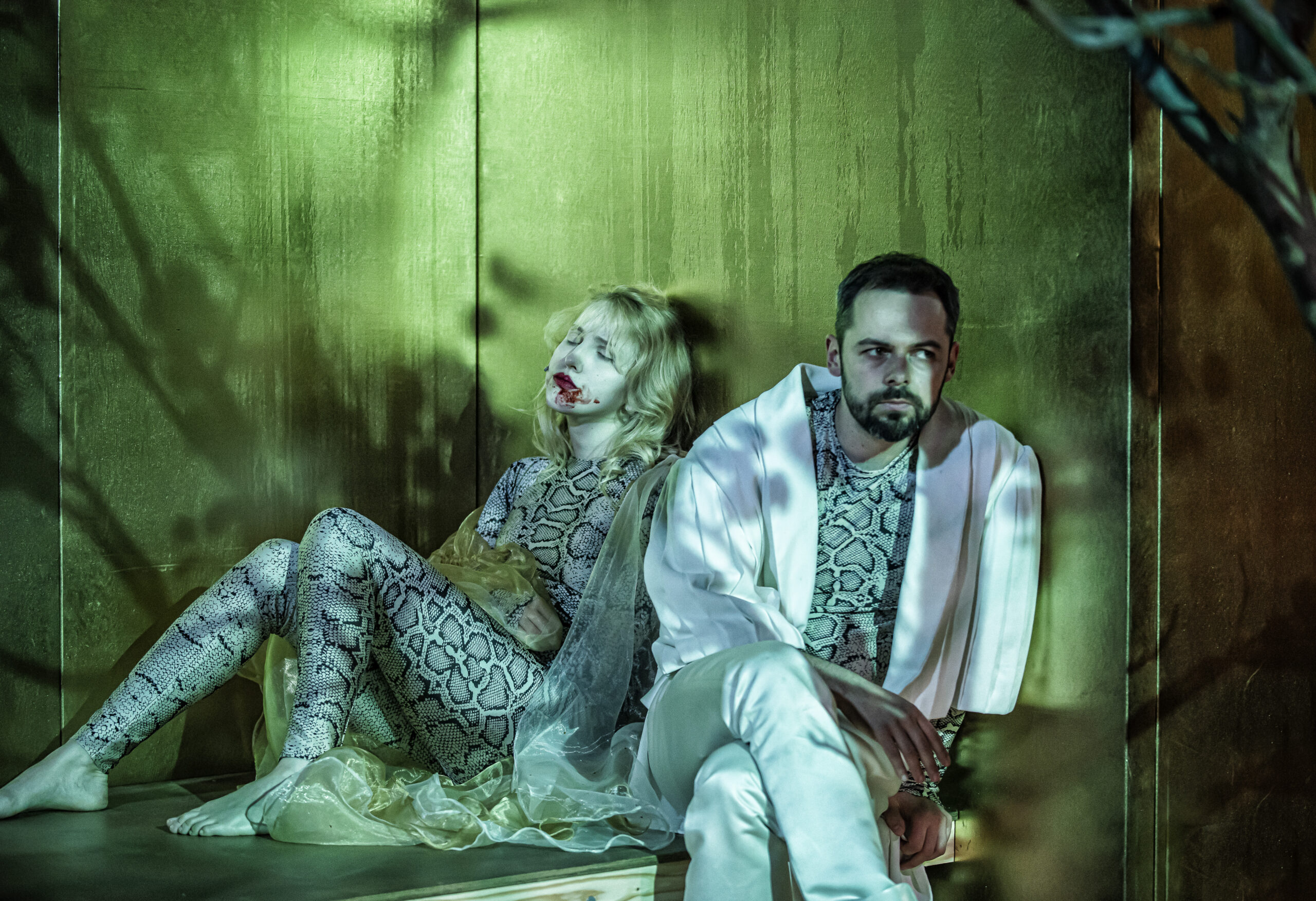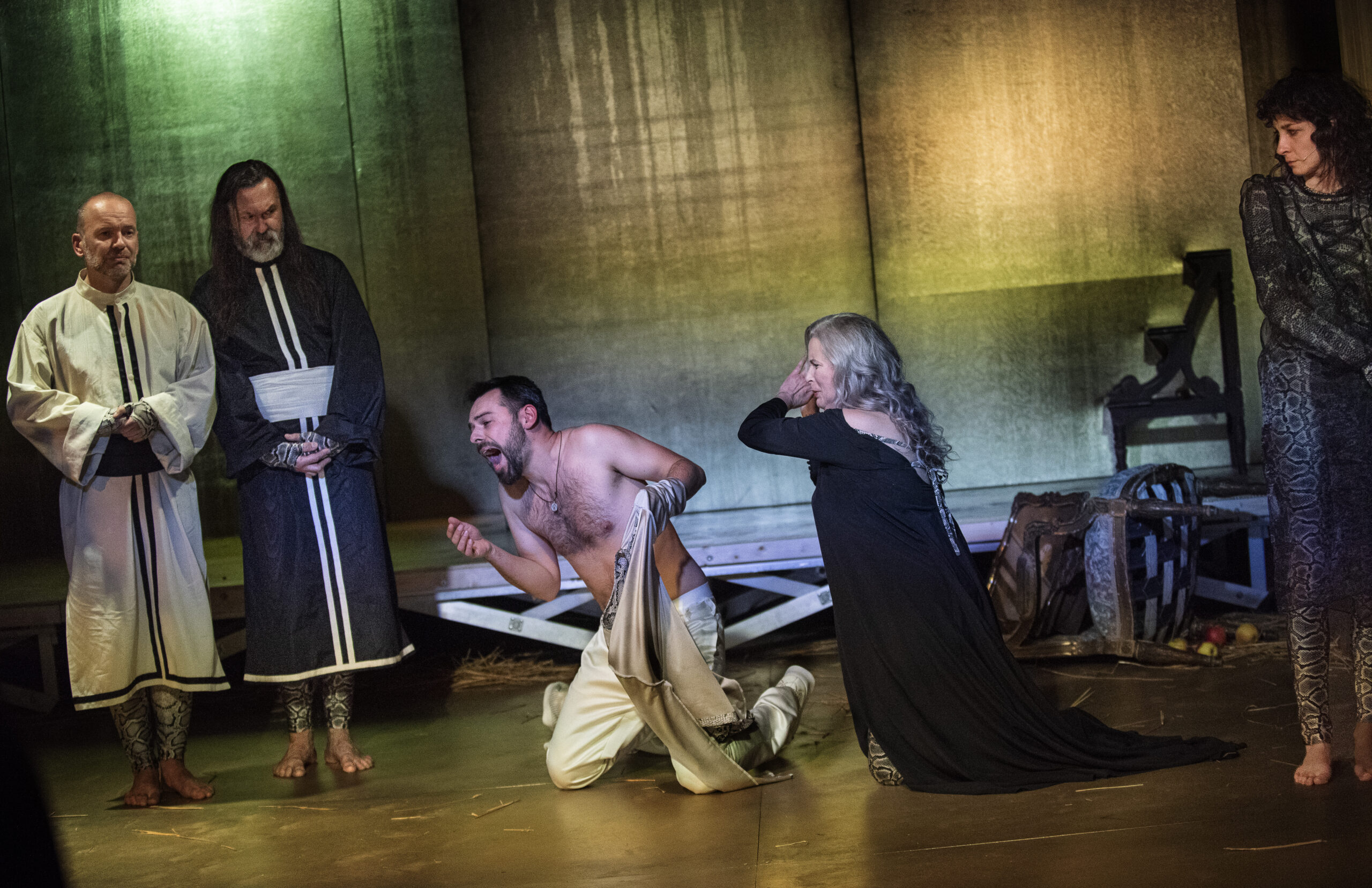Repertoire
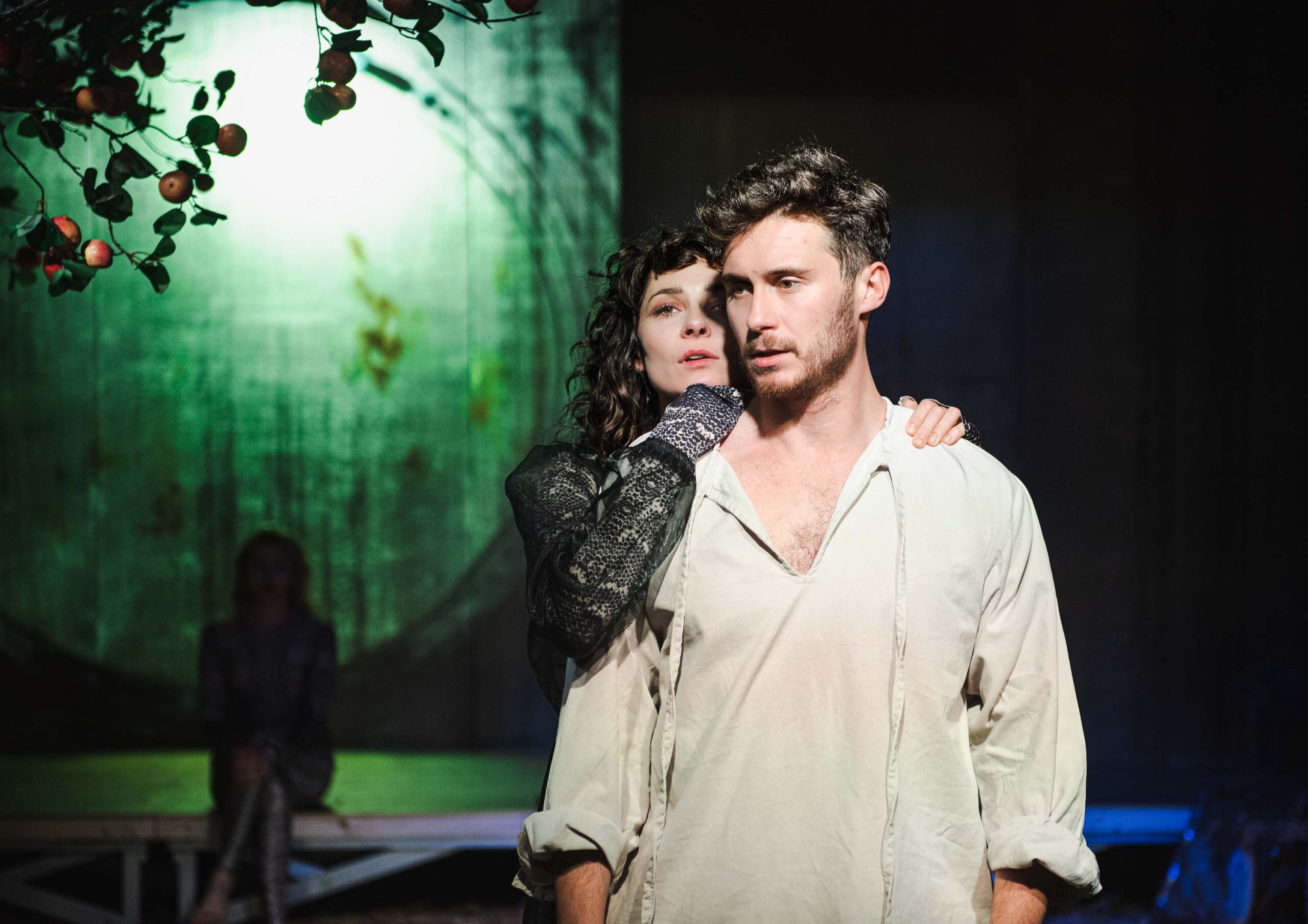
Tale of the Snake’s Heart
Dir. Beniamin M. Bukowski
ul. Jagiellońska 1
Some Jewish scholars have said that every night the world is disassembled and put back together by a mysterious demiurge. But because, like anyone, he can make mistakes, the new world may resemble the previous one, but is always a bit different, some things move around in a peculiar way. It can also sometimes happen that this or that part of the world gets mislaid somewhere and vanishes. That is why there is no order, structure, or purpose in the world, because every attempt at order, structure, or purpose is mere illusion.
A travelling troupe of rural actors is trying to put the world together by telling the story of Jakób Szela. Jakób, a lunk who has lost his heart and his identity, longs to be a lord. Yet because the world’s balance must be maintained, lord and lunk change places—or at least each of them latches onto a particle of the other’s identity. A fairy-tale, after all, is governed by its own laws, mixing truth, supposition, lies, and fiction, which may just turn out to be a higher form of truth.
This play is based on “Tale of the Snake’s Heart: Another Word about Jakób Szela” by Radek Rak, a novel which received the Nike literary award for 2020. The artists’ point of departure was the notion of identity, whether of the personal sort, in which the desire to make a change in the world is always at the cost of changing oneself, or the societal sort, in which our past as peasants and nobility blend, or the political sort, in which the complex events of the peasant uprising show the tragic weave of class ressentiment, the history of abuses, and a longing for revenge, which turns any hope for a Polish independence uprising that supersedes class into a bloody slaughter of the nobility.
This “fairy-tale” Jakub Szela is not the figure from the nightmare of the Galicia Massacre, he is a young peasant, an orphan about whom it is hard to learn anything concrete. The narrative itself is like a bunch of gossip and tall tales gathered in the huts and villages of southern Małopolska, heaps of suppositions and tentative assumptions about the real course of events. […]. The viewer is not left without food for thought, though no certain answers are provided to the questions the play raises. We only know what people say on the subject.
Mateusz Leon Rychlak, TEATR DLA WSZYSTKICH
Like in the novel, everything happens in a world which joins the real and the unreal, a nasty life in a poor village with fairy tales; Galicia is also Galilee, and the peasant becomes a lord (and the lord a peasant). In the theatre this duality has an added dimension—the actors are and are not characters, they are and are not narrators. They are part people and part snakes, with their snakeskin leotards peeking out from under their costumes.
Joanna Targoń, GAZETA WYBORCZA
Cast
Creators
- Beniamin M. Bukowski Director
- Beniamin M. Bukowski, Amadeusz Nosal Script/dramaturgy
- Aleksandra Żurawska Scenography
- Julia Ulman Costumes
- Anna Stela Composition
- Katarzyna Witek Choreography
- Amadeusz Nosal Video
- Julia Mazur Assistant costume designer
- Maja Wisła-Szopińska Assistant director
- Zbigniew S. Kaleta Stage manager/prompter
- Julia Dyga Composer's assistant
